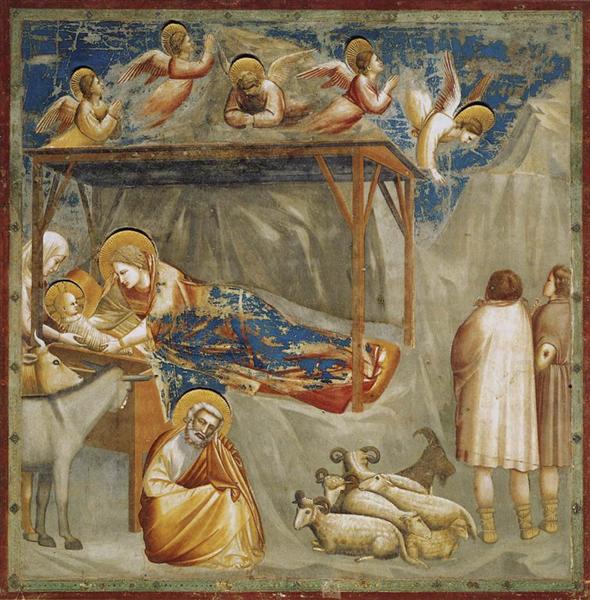The message of the coming of Jesus Christ into the world at Christmas time is probably the most enduring false message that has survived with us for two millennia. Without social media, trolls and misinformation. This is admitted by one of the foremost authorities on the origins of Christianity and also on the life of Jesus, Professor Joan Taylor of King’s College London, otherwise also the author of What Did Jesus Look Like?
In a pre-Christmas podcast for the History TV channel, she reminded us that the connection of Jesus Christ with the Christmas season did not emerge until Christianity became the official religion of ancient Rome in the late 4th century. “The celebration of Christmas is more associated with the rebirth and return of the sun. Christianity itself originated as a Jewish religious sect and adopted many customs from other cults, simply symbolically linking the birth of the messiah with the rebirth of the sun,” the academic says.
Taylor, who bases her academic work on a careful study of the Old Testament and the apostolic writings, has no doubts about the existence of Jesus as a real person. The Romans, she says, regarded him as a notorious troublemaker; today we might even say a terrorist who opposed the establishment.
He tested his surroundings with a simple recipe: in his travels, he would knock unannounced at the dwelling of a village in Galilee and ask for a roof over his head. “He wondered if the people would accept him. This was a real test of human character, hospitality and compassion.”
The extraordinary Gatwick-Kigali line
I was reminded of the words of Professor Taylor of King’s College when, in the same pre-Christmas week, the British Home Secretary Suella Braverman was cheering in Parliament over a gift sent to her, as if by accident, by the Supreme Court.
It upheld the government’s plan to relocate rejected asylum seekers to Rwanda, 10,000 kilometres away. A one-way ticket from Gatwick to Kigali will cost the taxpayer around CZK 330 000.
“Relocation to Rwanda is not a punishment, but an innovative way to tackle a serious problem and redress the balance between illegal and legal migration routes. It will also ensure that those in need of international protection get it in Rwanda,” Braveremen defended the plan, which was still being brought forward by Boris Johnson’s cabinet.
Her words on the floor of Parliament earned her scorn from opposition MPs. The sneers of Liberal newspaper columnists. And, a few tube stations north-west of Westminster, the astonishment of my neighbour across the road, Caroline Bourne (51).
Human Fates on the Edge of the London Orbital
While Suella Braverman was listing the benefits of refugees being removed to Rwanda in Parliament, Caroline was going through her own inventory. It contained the bare necessities of life from London donors. She was going to take them to the asylum centre in Colindale, north-west London, a few days before Christmas. “Baby diapers, wet wipes, winter baby boots and clothes,” she counted on her fingers the most desirable assortment.
One of the centres she is in charge of as a volunteer for the charity Care4Calais is in the Holiday Inn hotel adjacent to London’s inner orbital, the A406. The other is in a converted student accommodation. At the hotel, refugees are provided with three hot meals a day, and there are communal kitchens in the hostel where they can cook.
Caroline was drawn to volunteering by her interest in the stories of people on the run. Among the refugees she has met is a 40-year-old Iraqi. He once helped British troops stationed in Iraq as an interpreter. After they left, he first became a victim of kidnapping and then his own country became dangerous.
Unable to enter Britain legally, he sought an alternative. “He probably came over on an inflatable boat from Calais,” Caroline says in a low voice, as if afraid someone might hear.
She shakes her head in puzzlement as to why people like him have to wait years for permission to stay in Britain.
“The vacuum they find themselves in is demotivating. By law they are not allowed to work. Parents’ only duty is to send and accompany their children to English schools. And pick them up again in the afternoon,” explains Caroline, who is a non-practicing Jew.
Unlike Caroline, Suella Braverman is a practising believer and a Buddhist. According to a Buddhist magazine on the Internet, wisdom and compassion are among the core values of the faithful of this faith, which lead them to not only see and acknowledge the suffering of refugees, but also to offer them a solution according to their own strengths and abilities.
I am not sure Caroline knows the Buddhist faith better than her Home Secretary, who is said to dream of seeing a large photograph of a plane carrying refugees deported from Britain to Rwanda on the front pages of the newspapers.
When I see Caroline out of the window as she sets off in a fully-loaded Skoda Roomster in search of human souls on the London orbital, I have no doubt where Jesus of Nazareth would find a roof over his head if he turned up on our street today.
published: 2. 1. 2023







